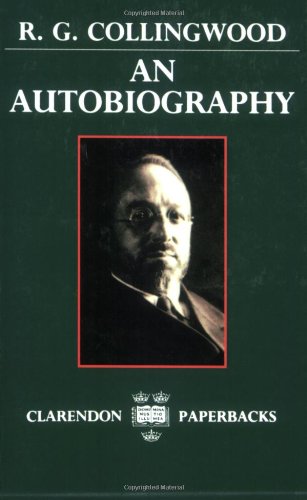
R. G. Collingwood – An autobiography (1939)
Collingwood believed that a philosopher’s autobiography should be about his ideas, and how he arrived at them, not his personal life. I approve. Collingwood had two ideas: 1) That a statement standing by itself is meaningless, unless you also know which question it is an answer to. Science is not an aimless discovery of facts, but asking questions, and forcing the subject matter to answer. And 2) that history is about understanding the thoughts and purposes of past people, about reliving, not reciting, events, and that it became a science when it stopped merely summarizing written records, and started forcing the records and archeological evidence to answer questions they had not been asked before.
Recommended: Yes.
Augustine – Confessiones (ca 400 AD)
You should always sample the original sources, to let the voices of the past speak to you in their own voice. I had the impression of Augustine as a theologian, but this work reveals him as a preacher and a poet, who struggles to find words to express his absolute love for and submission to God. A preacher, but not a wise one, and no philosopher. There’s no thought here, just emotions. The “Dark Ages” are a myth, but when you contrast Augustine to the pagan philosophers, it’s easy to get the impression of a culture shedding a heritage it has become too shallow to appreciate.
Recommended: No